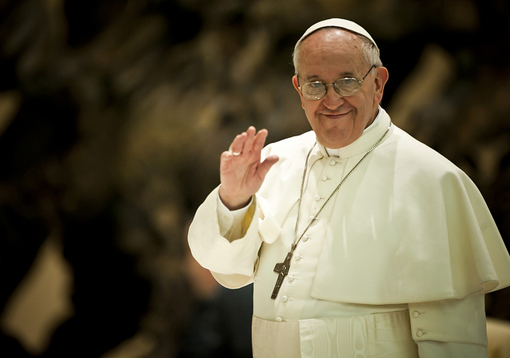While naysayers joke that the Cardinals may as well have elected another Italian Pope in choosing a porteño, the move to elect Jorge Mario Bergoglio of Argentina, now Pope Francis, is of undeniable significance for the global south. This is particularly true for Latin Americans, who—while accounting for 40 percent of all Catholics—often complain of neglect by church leadership and their limited sway in the Vatican.
Not everyone was cheering in Buenos Aires, however. Unsurprisingly, the new pontiff is a vocal opponent of lesbian, gay, bisexual, and transgender (LGBT) rights, calling adoptions by gay parents “discrimination against children.” That language is truly unfortunate, as was his opposition to marriage equality in Argentina. Nevertheless, the LGBT community should not consider the Pope an imminent threat.
Indeed, despite the Vatican’s resistance, gay rights have made impressive strides in the region. Apart from Argentina, several Brazilian and Mexican states have legalized gay marriage, while Ecuador, Uruguay and Colombia all recognize same-sex civil unions. Observers may be surprised by such progress in a region long considered a Catholic stronghold. No doubt, the Church’s antiquated views on gender and sexuality are fundamentally at odds with the principles of the LGBT movement. Yet, ironically, Catholicism’s penchant for being Euro-centric, old-fashioned and hierarchical has, in its own way, allowed sexual minorities to carve out a space in Latin American societies.This paradox stems from the fact that while a high percentage of the hemisphere is Catholic, the disconnect between the Pope and his flock is often great. For centuries, the Church has struggled to bridge pulpit and pew, yet a stubborn adherence to tradition has led many followers to take their priests’ directives with a grain of salt. Consequently, these Catholics find inspiration and community in their religion while still adapting to evolving social norms. This becomes especially clear on issues such as gay rights and contraceptives, on which Catholics tend to hold relatively progressive views. This is unlikely to change simply because the Pope is now Argentine.
This picture contrasts greatly with younger, evangelical forms of Christianity such as Pentecostalism. Without Vatican-like requirements for priesthood or control over individual churches, Evangelicalism has allowed charismatic leaders to amass mammoth followings by employing new media and targeted messaging. The evangelical movement has grown phenomenally over the past 30 years in Latin America—30 percent of Guatemalans practice evangelical Christianity, for instance—and is much less hospitable to LGBT people.
Polling of U.S. Latinos demonstrates this sharp divergence in public opinion. In October 2012, the Pew Research Center found that Catholic Hispanics support same-sex marriage more than their evangelical counterparts by a 2 to 1 margin—52 percent to 25 percent. Church leaders from both camps generally align in their condemnation of same-sex relations, yet one group of Christians is clearly listening more closely than the other. As the numbers of Latin American evangelicals grow, this fact poses a problem for equality.
No country demonstrates the battle for Latin America’s soul quite like Brazil, home to the world’s largest Catholic population. In 1970, 92 percent of Brazilians identified as Roman Catholic. In 2010, this figure stood at just 65 percent. The ranks of evangelicals, meanwhile, have expanded nearly 50 percent over the past decade and now account for nearly a quarter of the population.
The rise of evangelicalism is inexorably tied to the swelling of the country’s middle class. Embracing “Prosperity Theology,” which preaches that there is no problem with being wealthy while on Earth, evangelicals are rebuking the Catholic dichotomy between the material world and salvation. Within a booming Brazil, this message is finding traction with the help of innovative media outreach involving books, television, music, and social media. The leaders of this movement have become powerful political actors—proprietors of immense personal fortunes able to reach hundreds of thousands of followers with the click of a mouse.
Of these tech-savvy, mega-rich crusaders, Forbes highlights Edir Macedo of the Igreja Universal do Reino de Deus (Universal Church of the Kingdom of God), who has an estimated net worth of $950 million and controls Brazil’s second-largest TV broadcaster, a newspaper reaching over 2.5 million and a music label. Another, Silas Malafaia, the former head of the country’s largest Pentecostal church, has nearly half a million Twitter followers and is worth around $150 million. Both publically espouse a “love the sinner, hate the sin” posture regarding the LGBT community. During a recent interview Malafaia asserted, “I love homosexuals like I love criminals, murderers.”
This homophobia permeates not only conservative political factions, but extends across Brazil’s ideological spectrum. Beginning with former President Luiz Inácio da Silva and continuing under Dilma Rousseff, the Partido dos Trabalhadores (Workers’ Party—PT) actively woos the support of evangelical parties and groups. For example, in 2011, pressure from the congressional “evangelical caucus” led the president to veto anti-bullying materials for schools—the so-called “gay kit” scandal. Earlier this month, the chamber of deputies chose a new president to head its Comissão de Direitos Humanos e Minorias (Commission on Human Rights and Minorities), pastor-congressman Marcus Feliciano. Hailing from the president’s congressional base, Feliciano has called HIV/AIDS a “gay cancer.”
So those who believe in equal rights for the LGBT community should not get frustrated the next time the Pope says something outrageous about condom use, the Church refuses to open positions of leadership to women, or the sanctity of same-sex relations is denied. Instead, perhaps a little prayer of thanks should be said for the Vatican’s idiosyncrasies. The promotion of LGBT rights is not most threatened by the Church; instead, the concern should be the less open evangelical leaders.








